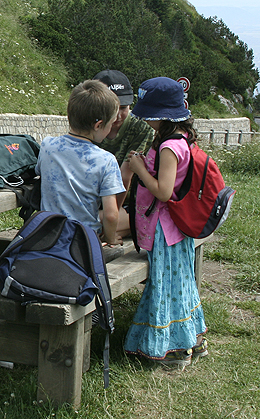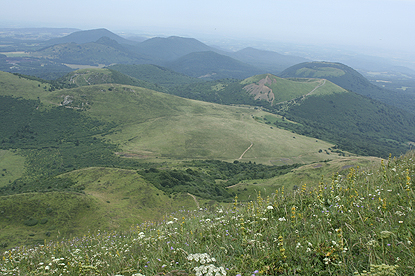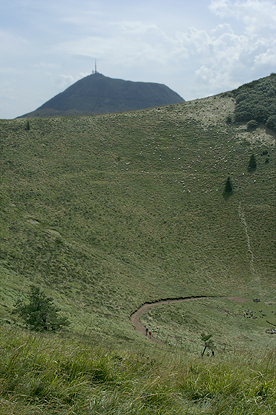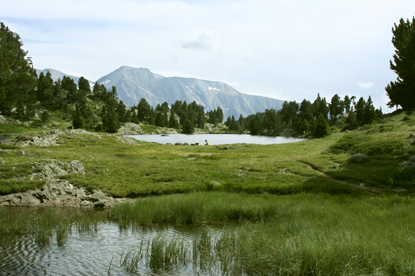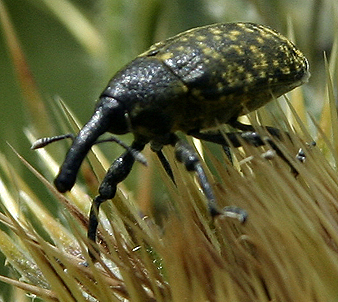I have to do something about our books. There are too many of them. Many of them are not very good, and the ones that are good are swamped. Some of them are only useful at specific times, like travel guides for places we go to regularly. There are lots of books that are good, which I would like to have but don’t (and don’t have space for them!)
All posts by Penny
The Social Services Visit
The social services ladies came today. They were pretty professional, in that they asked the questions the law requires them to ask and nothing else. They said the job of inspecting the three families in this division has been knocked around with nobody really knowing who should do it, until finally it landed on their desk. They don’t know if they will ever be expected to do it again, or if they are the right people.
In retrospect, the only thing that is raising my hackles was them asking me if we ever thought of taking Antonia to a child psychologist. The reason I’m upset is not because they asked it, specifically. It’s to be expected, as it’s a standard solution here. Believe it or not, lots of kids just don’t seem to be too happy in school! I just feel I did a really bad job of explaining why I don’t agree with defining a child as in need of medical help because of it. School is not so right and wonderful that only a psychologically abnormal child wouldn’t deal with it. Not by a long way. I’m still explaining it badly. Oh well…
As far as I know, we will never hear anything back from this meeting. It is just an information collecting exercise.
Scheduling
Today, I got the academic year planner for 2008-9 and began the task of filling in the weeks on which we are going to homeschool, however loosely, as opposed to the weeks that are holiday. I have to do this because all the possible holiday time is taken with up with trips abroad or visits from family. It’s a struggle to fit in 36 weeks of school time, but I make the effort. If I did not mark those weeks out, they would disappear into more trips and visits. And I’ve just remembered an extra thing I didn’t count, so I’m already a week down. Now, I’m not knocking the educational and social value of trips and visits, but:
a) They are usually exhausting and over-stimulating, such that all attempts at reading, writing, maths, rational thought and maturity go out of the window during them. Whereas those things are important. All the little schedules we set up to make our life work better get blown away too. There is pretty much always a longish take-off ramp for getting back in gear.
b) During trips and visits, every available minute of the child’s time is pretty much planned out by the adults around her. Whereas when we are ‘doing school’ she gets large amounts of the day and week to do exactly what she wants: play, carry out a project, read a book, or ask to visit somewhere or someone locally (she knows what’s available, so she can make a choice). This, I think, is even more important.
I would love to have more flexibility, but the year isn’t long enough. Mike has a solution: we “do school” during trips and visits. Then we can squeeze in more of them. He doesn’t understand that point a) means I have noticed that this is a failure already. He thinks we can somehow make it work if we just try harder. Maybe it will work better if he is on board as well. I don’t think he really appreciates the value of point b) at all. I would be more motivated to try to do school during trips and visits if I knew for certain that it was going to pay off with a couple of quiet weeks at home just pottering around.
I’m a casualty of summer!
After months of thinking the hot weather would never come, it is here! The house is like an oven by day, and swarming with uninvited critters by night. Last week I heard another snake between the inner and outer walls in our bedroom. I didn’t tell the others as there’s nothing we can do about it, and it would only upset them. There is currently a dragonfly in the bathroom. This is probably my fault, because I have reached the stage where I no longer care how many mosquitoes bite me as long as I can sleep with the windows open. Antonia has given up sleeping for more than about 5 hours a night, perhaps because of the heat. Inevitably, she is tired and spaced out by day. I have sunburn on my shoulders, which isn’t good. I have a mysterious expanding rash on my toe, which is possibly worse, since I recall removing a tick from that area, a couple of weeks ago. I’m going to the doctor to get it checked out tomorrow.
Did I mention that it’s been unusually humid. Hence the dragonfly and profusion of ticks. But now there isn’t so much as a thunderstorm on the horizon. If things get much hotter, I may have to resort to eating ice cream! I seem to be the only person on the planet who would much rather not do so. In the meantime, our usual healthy, organic diet seems to have evaporated in favour of a few raves from my childhood, when we enjoyed this kind of climate for about 5 months of the year. This evening, I had merguez (spicy beef sausages, not in the least organic, I’m afraid) in baguette (industrial, hyper-refined white bread), with extra hot sauce (OK, it was from Texas). Tomorrow, it’s moules marinieres (mussels in white wine broth), with errr…. chips… We have to do it, it’s traditional. On the other hand, we seem to be buying fruit several times a week at the moment, which suggests we are eating about 3 times our usual ration.
This is the time of the year when the sensible option is to hide inside all afternoon with all the shutters closed.
The 100 Species Challenge
I decided to try Sarah’s 100 Species Challenge. It’s a really cool idea, and I think half the challenge will be to see how many names Antonia can learn too. My list of plants so far is one of the pages listed at the top of the sidebar. It is there because there are many things I haven’t figured out about WordPress yet, and one of them is how to edit my sidebar in any entertaining way.
The first part of the challenge is to post the list of rules, as follows:
The 100-Species Challenge
1. Participants should include a copy of these rules and a link to this entry in their initial blog post about the challenge. I will make a sidebar list of anyone who notifies me that they are participating in the Challenge.2. Participants should keep a list of all plant species they can name, either by common or scientific name, that are living within walking distance of the participant’s home. The list should be numbered, and should appear in every blog entry about the challenge, or in a sidebar.
3. Participants are encouraged to give detailed information about the plants they can name in the first post in which that plant appears. My format will be as follows: the numbered list, with plants making their first appearance on the list in bold; each plant making its first appearance will then have a photograph taken by me, where possible, a list of information I already knew about the plant, and a list of information I learned subsequent to starting this challenge, and a list of information I’d like to know. (See below for an example.) This format is not obligatory, however, and participants can adapt this portion of the challenge to their needs and desires.4. Participants are encouraged to make it possible for visitors to their blog to find easily all 100-Species-Challenge blog posts. This can be done either by tagging these posts, by ending every post on the challenge with a link to your previous post on the challenge, or by some method which surpasses my technological ability and creativity.
5. Participants may post pictures of plants they are unable to identify, or are unable to identify with precision. They should not include these plants in the numbered list until they are able to identify it with relative precision. Each participant shall determine the level of precision that is acceptable to her; however, being able to distinguish between plants that have different common names should be a bare minimum.
6. Different varieties of the same species shall not count as different entries (e.g., Celebrity Tomato and Roma Tomato should not be separate entries); however, different species which share a common name be separate if the participant is able to distinguish between them (e.g., camillia japonica and camillia sassanqua if the participant can distinguish the two–“camillia” if not).
7. Participants may take as long as they like to complete the challenge. You can make it as quick or as detailed a project as you like. I’m planning to blog a minimum of two plants per week, complete with pictures and descriptions as below, which could take me up to a year. But you can do it in whatever level of detail you like.
I’m starting the challenge with a really weird flower we identified last week. It is called Monotropa Hypopitys and has a bunch of common names, one of which is Dutchman’s Pipe.
Mike was convinced it was a fungus because it was growing in a very dark wood. Also it is fungus coloured, with no green parts. There is a simple explanation! This plant does not photosynthesize. It is a parasite, feeding off the bodies of fungi under the ground. I was fascinated.
This Monotropa can be found throughout the northern hemisphere, but according to Wikipedia, it is rather rare.
We also saw Martagon Lilies last week. Antonia was the first to find them, so she is very proud, and remembers their name. They are quite spectacular, and though not terribly rare, you have to be in the right place at the right time to spot them.
Martagon Lilies are only found wild in Eurasia as far as I know. Perhaps they are garden flowers elsewhere?
Why we homeschool – Part 2 is about why we left school behind
What went wrong with school? It would be easier to say what went right…. not much! But let’s start with goal number 1, which was that Antonia should learn French. Maybe we started too late for her, as she was a very precocious English-speaker. Being in French-speaking environments bothered her from the age of 18 months, and she said so. Not many 18 month olds do that, I guess.
At the end of her second year in school, I was very concerned, because she still could not put together even fragmented sentences. She did not know the names of items she used everyday. She appeared not to understand simple, common sentences. She would not answer questions from adults under any circumstances. She would not play with French-speaking children, and at the age of four her social development was suffering. Meanwhile her English was pretty much that of an adult and she was friendly and outgoing to all and sundry. Some brief, intensive sessions with a speech therapist helped to build up her confidence in French, but as soon as the sessions came to an end, she regressed.
Goal 2 was that she should have a nice time. She didn’t. Not ever, really. But things got worse rather than better. At the age of 2, she would throw screaming fits at the nursery if she was dissatisfied, but she was actually rather pleased with herself when she got home. At the age of 3, she would say that she supposed she had to go to school because Mummy and Daddy had to work and were too busy to look after her. She cried every time she forgot that we would prefer her not to. When she was 4, all hell broke loose. She cried morning and night over school, and was generally depressed all the time. I spent my evenings cuddling her, and my days trying to think of ways to make things nice for her. My weekends and holidays revolved around getting her in a fit state to go back again. I think our only choices were to remove her from school or take her to a child psychologist. The latter option seems to be extremely common around here, but we chose the former.
Now, it makes sense to wonder what happened at school that was soooo terrible. What did she do there? It would appear that she sat in corners making scribbles, which was strange, because at home she was making quite complicated figurative drawings. She broke glasses or plates at every mealtime, though at home she rarely broke anything. She declined to learn anything in school, including French words for concepts she already knew like colours and numbers. But she was very demanding of intellectual stimulation at home. She learned to read English at home but apparently “did not know her letters” at school. By then, I was starting to realise that she was good at abstractions, but had to be virtually bribed to handle physical objects. Montessori didn’t seem like a very good match for her, or maybe her hatred of the school contributed to making her that way.
She also got upset on a daily basis because she got knocked around by other kids, some of whom had behavioural issues, and some of whom had behavioural issues combined with mental handicaps. She still has a scar on her face to prove that it got pretty rough in there at times. Her worst memory at this point is of the noise levels. She spent two years out of the three (the first and last), trying to hang out with the two English-speaking kids in the school who were rather older than her, and getting upset when they wanted to play with someone else. She spent the middle-year in a class with much younger children, many of whom were pre-verbal, because that appeared to the teachers to be the best class for someone who scribbled and didn’t talk yet. She was very clingy to the adults. She learned to hide in corners in the playground instead of playing, so that her physical development began to suffer too. Since she wouldn’t talk, she used clothes as a form of communication. That’s when she became very, very, interested in her appearance. She would enter the classroom with her dress held out to show the teacher, as a substitute for saying “Bonjour”.
What did we do during this time? We spent our time trying to communicate our concerns to the school, wondering most of the time whether we were crazy of they were! I think they felt the same way about us. Pretty often, we wondered whether it could even be our child they were talking about. But then, when I observed her in the school environment, I saw that she had a completely different personality from at home. I didn’t consider any of the traits I saw her developing there to be in her best interest. I am so, so glad we got her out.
And why didn’t we do it sooner? Well, I would have tried something else at the end of the first year. But the fact is that my husband and I had to come to an agreement and that was not easy. It only happened because I applied rather more pressure than I am comfortable with. He had loved the Montessori school he went to and wanted to give his child the same opportunity. It wasn’t easy for him to realise that it wasn’t suiting her the way it suited him. Also, I remember very well when I first met him that he and I commiserated over the horrible times we had at school, socially and academically. But somehow, between then and him becoming a parent, those memories evaporated into a rosy haze of happy children playing together in their own little community! And he was the one who cared deeply about us being an English-speaking household. That was obviously going to be thrown into question if we homeschooled. We looked into every possible school, before we were both convinced that it would be more of the same, or worse!
It didn’t help that I was the one on the receiving end of our daughter’s unhappiness and he wasn’t. In fact their relations were rather distant at this time. The clash between school schedule and his work schedule meant that he spent very little time with her. When he did, he took her over to play at friends’ houses and chatted with other adults. She was glued to me literally at every opportunity, and was pretty direct in expressing her preference. I know it was upsetting for him. He was the number one beneficiary of her switch to homeschooling. Within weeks, she started admitting to liking him, and now she loves us both equally. But still, somehow, homeschooling ‘feels wrong’ to him. We get to keep on doing it for as long as he is outvoted, 2 to 1!
Camping trip: the volcanoes of the Auvergne
Yes, France has its own volcanoes, albeit extinct, and we just got back from a two-night camping trip to the Auvergne to visit some of them. On the first day we met our friends at the volcano theme park for the area, Vulcania. Now the kids liked this! They didn’t even mind queuing for the simulated volcano exploration rides. But I couldn’t help thinking how much nicer it would be if nine tenths of the people were at school when we went. And both Mike and I have seen so many real volcanoes that the reconstructions of geysers and bubbling mud pools didn’t quite cut it for us. Still, I can see the point, for the majority people, and it was quite nicely done.
We really had fun on the next day, hiking up the Puy de Dome, then down and across to a crater called Puy de Parigou, then down to the car park. Then we just drove back to get the other car. The kids walked 12.5 kilometres and weren’t even tired!
Here are our happy hikers. I did not choose my daughter’s hiking outfit! In fact, when I saw it, I packed some trousers in my backpack just in case they were called for:
Where we are going (above). We are heading for the crater of the Puy de Parigou where the path leads, then down the other side to the car park. And where we came from (below). It’s very beautiful countryside and very easy to walk, except the Puy de Dome (the one we came from), which is quite steep:
At 4 o’clock in the morning after this long hike we were awakened by high winds, lightning that appeared uncomfortably close to our tents and showers of rain. We didn’t mind too much, we were heading home anyway. We breakfasted under a rainproof parasol at the campsite cafe, and took our tents down during a brief dry moment. Then we drove for three hours in a torrential downpour, hung our tent up to dry from the beams in the living room, and now we are quite ready to collapse into bed.
Why we homeschool – Part 1 is about why we sent our child to school in the first place.
With the social services knocking on the door in a week or so, it’s time to put some ideas in order. Don’t worry, readers, this is not as terrible as it might sound in the US. They are not picking on us, but following a procedure required by law. The law might be picking on us, but that’s another matter. So, their remit is to find out why we are homeschooling, and that we are actually doing so, i.e. we are not forcing our child to work in the fields all day, and cook and clean as well when she gets back!
They won’t have thought of wondering why we put our child in school in the first place, but it’s a point homeschoolers sometimes raise. Since we had a reason, I thought I’d start there. We had heard of homeschooling before our child was born, and I, at least, liked the idea. But we felt that some aspects of our situation prevented us going ahead with it. We, the parents, live in France and are English and American respectively. At least I am English in theory. In practice, I also lived in France during my childhood so I was bilingual early on. My husband, not so much. He speaks French pretty well now. When we were awaiting our child we obviously had a decision to make over what language we would speak to the child. My husband was very keen that we both speak English. He was afraid, and statistics back him up, that if I spoke French and the environment was French, our child’s English would be weak.
The inevitable consequence of English in the home was that our child needed to spend plenty of time with French speakers from an early age, in order to pick up that language as well. Now, since virtually all French children are in daycare or preschool from the earliest age, and since virtually all their parents are unavailable for socialising in the day time hours, we felt we pretty much had no option. Antonia went to part-time daycare between the ages of 1 and 2, then to a Montessori pre-school (so not quite to public school) full-time upto the age of 5. Part-time was not an option. Our only goals for these years were that she should learn French and have a nice time. Alas, she did neither.
Nature walk: Lac Achard in the Alps
Today, we hiked up to Lac Achard in the high mountains (nearly 2000m). We were not quite above tree level, but definitely in open land.
A change of scene is always nice. We saw many things that are new to us:
- A kestrel hovering then diving on its prey and catching it.
- A snout weevil with a trunk like an elephant
- Numerous wild flowers of the high mountains, including the yellow gentian that grows as tall as Antonia, and the rare-ish martagon lily
- Tadpoles, some of which were just growing their back legs, and all of which required little rush houses, built by Antonia!
- A rare-ish orchid. With an ant on top of it. Another ant tried to climb up and they had a long battle, at the end of which the invader fell off. The winner then tried to climb down the orchid, but couldn’t seem to manage as all the parts pointed upwards.

Homeschooling overview, or where we’ve got to
We don’t really have a start or end to our homeschooling year, but sometimes you just have to see where you’ve got to, and I’m in that mood now. Maybe it’s because I have to send off our homeschooling declaration for 2008-9 in just a couple of weeks. Maybe it’s because the social services are coming round a few days before that, and their visit will wrap up the requirements for our first year of formal homeschooling. So here goes:
Maths: the 2nd grade maths book we are using is virtually finished, and we are on a roll which I hope will continue into the 3rd grade book. We spend half an hour on the maths book, 4 times a week. The work is very varied, so sometimes we finish one problem in a session, sometimes we do a page and a half. Sometimes, Antonia works by herself and I get the housework done, sometimes she needs my help. More often, what she really needs is moral support, so I am trying to encourage her gently to be more autonomous. We also do ten minutes of maths drill every day. At the moment it’s always multiplication tables, earlier in the year, it was telling the time.
Reading: We read all the time, all sorts of things, by ourselves, together aloud, whatever. Antonia is more drawn to stories and poetry than non-fiction. Tracking a child’s reading for record-keeping after they get fluent can be complicated. I’m recording our after lunch reading books, one is read by her, and one is read by me, and I’m leaving out all the rest.
English: the reading, writing and spoken language have all come together, so that Antonia reads and speaks well, and above all spells and punctuates the sentences that she chooses to write pretty well. We worked officially on spelling for a while, but now I see that the visual memory from reading is starting to kick in and she can spell many words I would not expect her to get right. She is writing about four sentences in English every day, usually a story, which is now turning into a saga, and sometimes a letter. She’s reading for fun, and beginning to read parts of her history book herself.
French: we are not quite at the same level as in English yet, alas. She reads at nearly the same level as in English, but even orally, she has a poor grasp or grammar and doubtful comprehension. She tends to read the way she speaks, where grammar is concerned. If she were left to her own devices, that would only reinforce the mistakes, so I am going to encourage her to read French aloud. Writing in French will be our big project for next year and at the moment things look fairly grim. She cannot even formulate a correct sentence to write, let alone set about spelling it correctly. I am hoping it will all come together over the next year. I will be so glad when it happens, because it is taking a lot of our time. We are doing written exercises four times a week, spelling four times a week, and reading a passage for comprehension twice a week. I can think of a lot of things I would rather do, and I’m sure she would agree. On a positive note, I should say that she has very nice cursive handwriting.
History: This is our big success at the moment. I waited patiently for ages for history consciousness to kick in and here we are. We are working through Story of the World twice a week, and keeping a Book of Centuries that works for us. We look through the Book of Centuries once a week to make sure we remember the main people and events. We do associated activities as and when we please, so we have all kinds of helmets, spears and cuneiform tablets all over the house. The child also found a broken mug in a yard, collected all the pieces and proudly tells everyone who comes to the house that she is an archaeologist!
Geography: Well, we are still travelling quite a lot! Aside from that, geography at the moment consists of learning the names of continents, oceans, countries, rivers and regions. Especially those we have travelled to or studied in history. Officially, we do this for 15 minutes a week, but in practice, she wants to do it more often.
In theory, we do one of the activities below once a week!
Science: Strangely, for a very science orientated family, we are going nowhere in particular with science at the moment. Pretty often, we do the shopping instead. I feel that Antonia is ready for something more than we had done up till now, but I haven’t found a resource I like. I am feeling like I have to make my own, and of course that is a lot of work. In truth, we have done a lot of science already, and if we didn’t do any officially in the coming year it wouldn’t matter, but we absolutely must have something for the year after.
Music: I like the Suzuki Piano program. I do not think I could say we are making fast progress with it, partly because up till now, Antonia has been practising its pieces for no more than a few minutes a day. And partly, probably, because I don’t know the best way to teach. We have averaged one piece per month we were at home, which puts us at piece five. Piano has probably been our most unschooled subject. Now, however, we are having one long music lesson per week, and will add music reading soon since Antonia has been saying she feels handicapped by not being able to read.
We also listen to a lot of music. I feel like Antonia would like to know more about musical forms, and with the arrival of history consciousness she is interested in composers and their biographies. At the moment we haven’t made time to do more than listen and stick their pictures in the Book of Centuries.
Art: This is like music, it’s one of the things that tends to get squeezed out, which hasn’t stopped Antonia filling her sketchbook with very individual drawings. I plan to try detailed study of individual pictures. At the current rate, I think it will take us about one month to study each picture.
Foreign language: We chose Chinese. Antonia is very enthusiastic about it. At the moment, it is mostly consisting of playing the CD in the car as we drive around. At some point we will have to sit down with the book, because there are other activities connected to reading and writing Chinese. I am not worried about speed of progress for now.
Nature study: This consists of a long outing once a week, which might be combined with a cultural or fun activity, and shorter walks several times as week. We are in a slightly similar position with nature study as we are with science. We go out a lot, we enjoy ourselves and see nice things, but it doesn’t feel to me as if we are in a different place from where we were last year. I very much like Anna Botsford Comstock’s Handbook of Nature Study, but there again, as we live in Europe, many of the species are different so I can’t just use it ‘off-the-shelf’. Antonia is certainly more into outdoor physical activities at the moment which is valuable in itself, but is more of a sport.
Sports: The sports are all on summer holiday, it would seem!


